Photographers Without Borders: Sarajevo’s first unofficial pride parade
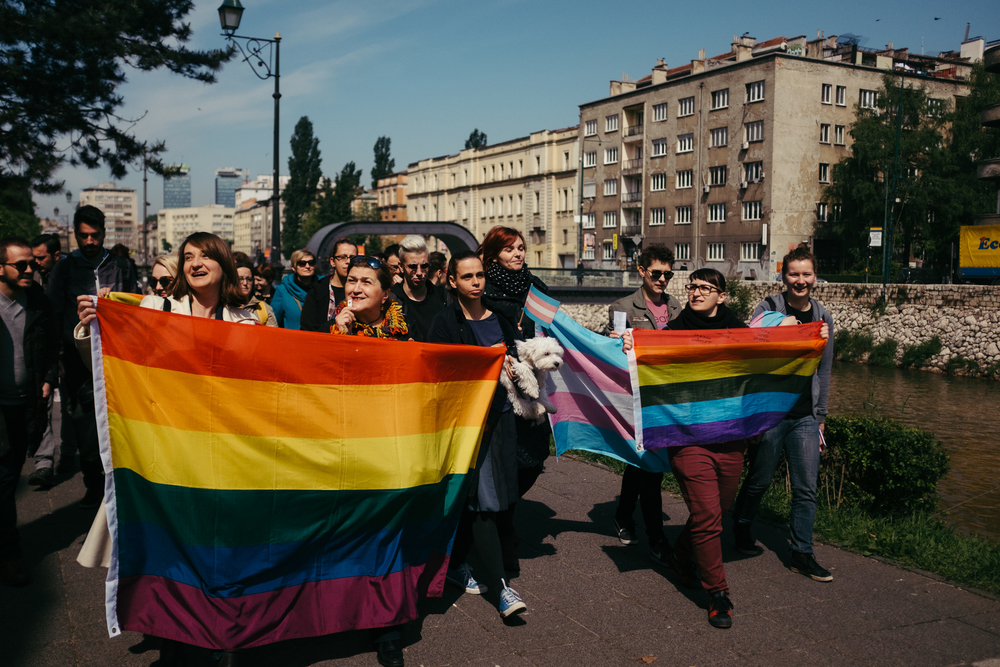 By Mel Hattie, Photographers Without Borders
By Mel Hattie, Photographers Without Borders
Sarajevo is a city unlike my own. The language is Bosnian; Islam is the majority religion; the coolest place to hang out is an old Ottoman market; there’s a nostalgia for communism; the youth unemployment rate is 60 per cent; downtown buildings are riddled with bullet holes; and there are redpainted scars in the sidewalk where mortar shells killed people during the 1992 – 1995 siege.
Despite these differences, I never felt uncomfortable here until I saw a man spitting and swearing without restraint at people in a LGBTQI advocacy march. That’s when I started to realize the scope of homophobia and human rights problems in Bosnia.

On the morning of May 17, the International Day Against Homophobia and Transphobia, some Project 1948 colleagues, and I walked to the Parliament of the Federation of Bosnia and Herzegovina. It’s a modern building near the city centre along the banks of the Miljacka river.
A teenage participant in Project 1948’s photovoice project told us the about the silent protest taking place, organized by the Sarajevo Open Centre, an advocacy group in the city that gives a voice to LGBTI and women’s rights issues.
When we arrived, we met volunteers outside, handing out copies of the SOC’s annual “Pink Report on the State of Human Rights of LGBTI People in Bosnia and Herzegovina.”
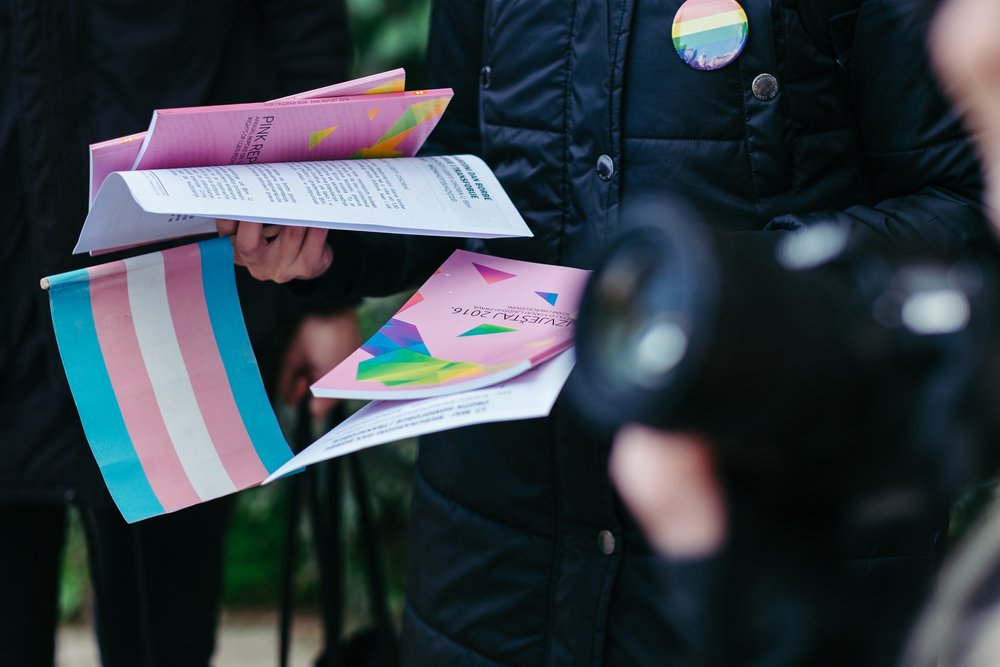
The Pink Report calls for the legal recognition of samesex couples as well as protection against discrimination based on your sexual orientation or gender presentation.
Naida Kučukalić is a program coordinator with the SOC. She says the silent protest is about reminding their allies inside as well as the rest of the parliament that, “we are here.”
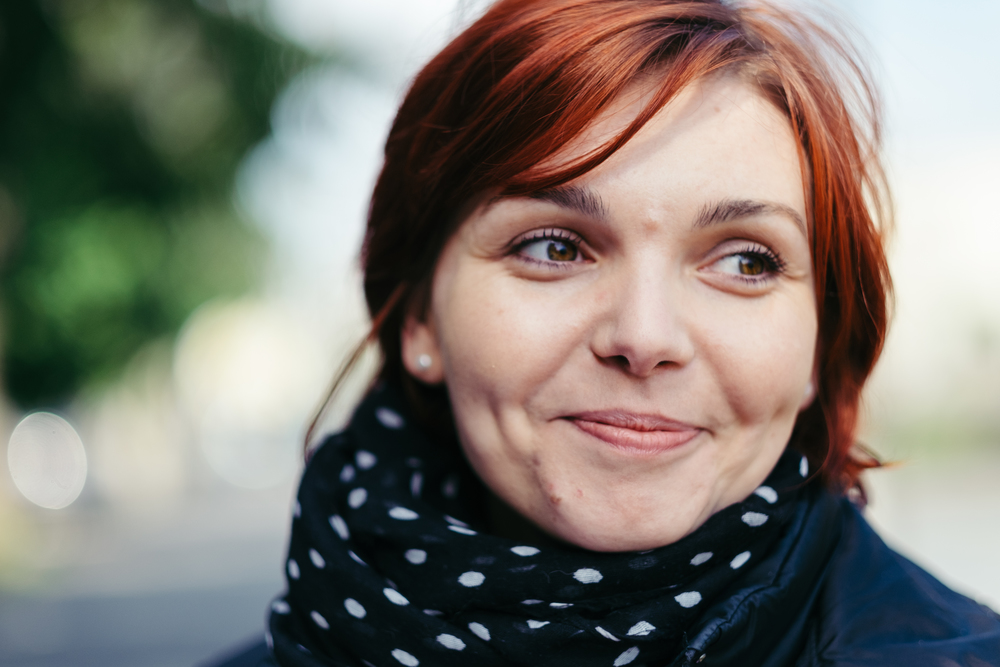
Reading “The Pink Report” will give you a more comprehensive overview of the situation in Bosnia, where homosexuality was only decriminalised in 1996, but in a nutshell: Same-sex partnerships are not legally recognized, homophobia is common, as are attacks and harassment of LGBTQI people. Hate speech based on sexual orientation or gender identity is not illegal.
Attackers often face no repercussions, like the March attacks at the Art Kriterion Cinema, one of the few LGBTQI friendly bars in Sarajevo. Earlier in the year, Kriterion hosted the Merlinka Festival, one of the country’s few regular LGBTQI events. Those who can often travel to neighbouring Serbia or Croatia, where the LGBTQI situation is not great, but many find better than Bosnia.
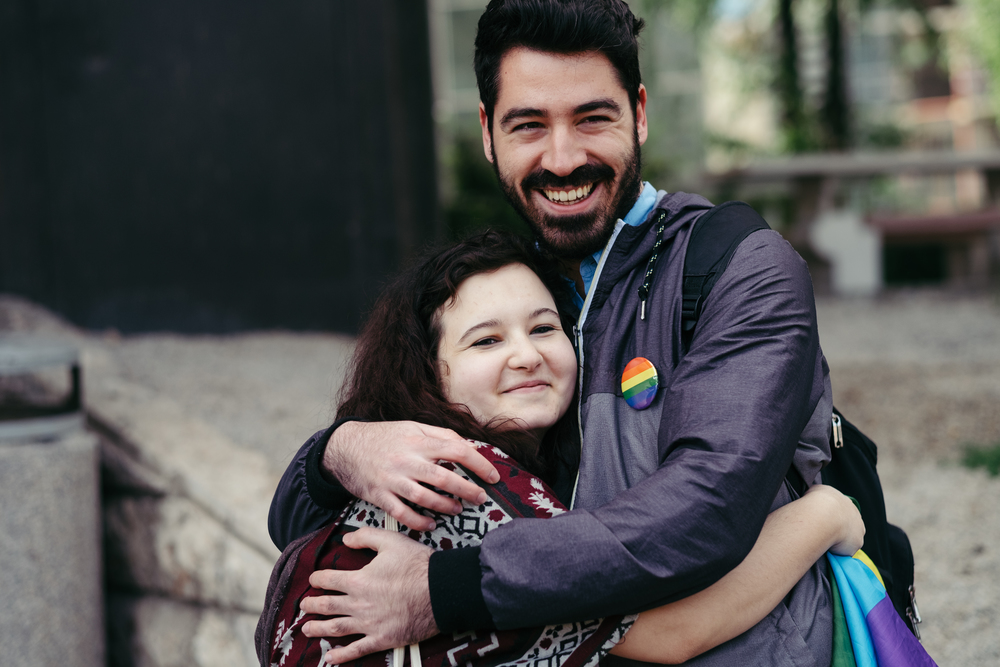
One young woman I met through Project 1948 told me she stopped being active in the LGBTQI community because she was worried about losing her job. Another teenage boy told me if he held hands with another boy in public, he would expect to be beaten.
With Sunday’s shooting at the Pulse nightclub in Orlando, it has once again become painfully obvious that hatred is putting LGBTQI youth at risk globally.
In Bosnia, being any kind of minority can cause you trouble. The Bosnian constitution segregates its citizens by ethnicities. Officially, you can be Bosniak, Serb, Croat or “other.” The country has three presidents: one Bosniak, one Serb, one Croat. People in the “other” category are unrepresented in the government. They include Roma, Jews, Montenegrins, Albanians and anyone else who doesn’t fall into one of the three main ethnic groups.
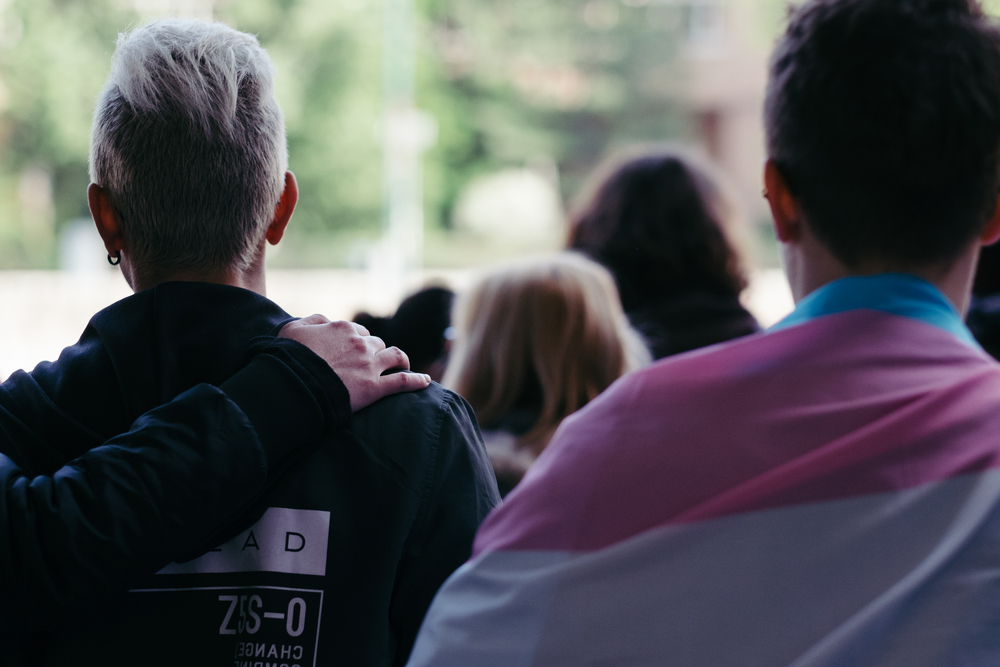
Kučukalić says that while there are people in the city who are willing to come out and stand up for equal rights for the “others,” they’re much less willing to come out and defend LGBTQI rights.
“It’s frustrating,” she said. “It’s all intersectional. You have gay Roma.”
After their hour is over, the group decides to walk with their rainbow flags a few blocks along the river towards one of the few queer friendly cafes in the city, Kino Meeting Point.
“It’s like our first gay pride parade,” said one girl.
People on the streets stopped and stared.

I ran ahead to take photos, and as I’m waiting for the crowd to come towards me, a man steps out of a cafe. He points to the group marching with flags and asks me what is going on.
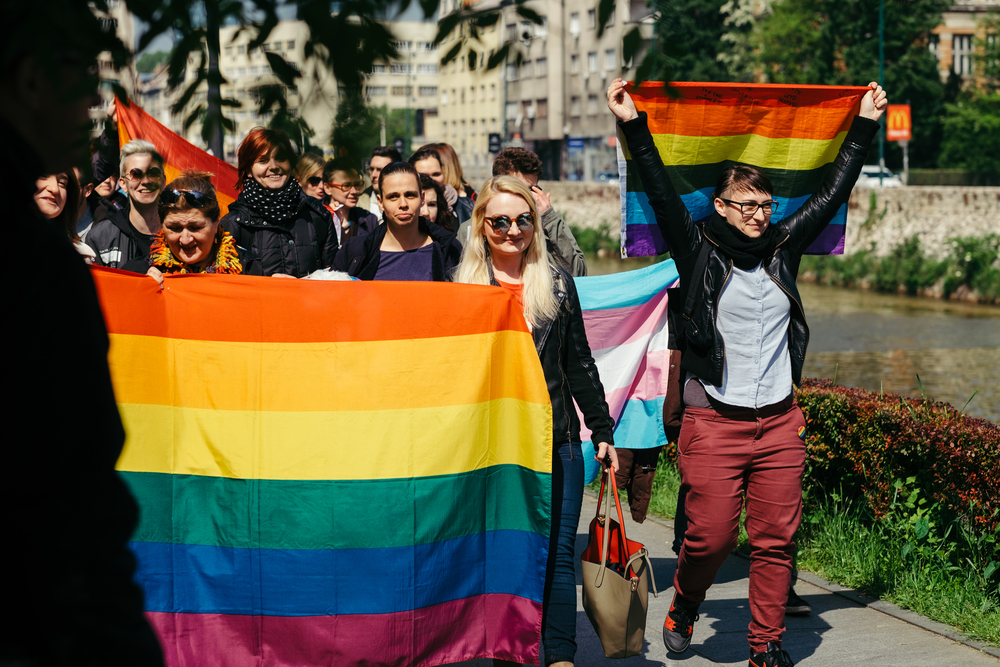
“Gay pride parade,” I said.
His response is immediate and vehement. “Gays? Fuck gays.”
He starts spitting at the people in the parade as they pass by. For the most part they just ignore him.

After I take his photo, he turns to me, “What the fuck are you doing?” He starts yelling, “Fuck you. Fuck you,” then takes a step forward, puts both hands on my shoulders and shoves me hard enough that I take a few steps back. I left him and joined the parade.
No one was hurt, but I was frustrated by the interaction and haunted by the image of a young boy who was peering around the man’s leg as he shoved and spat at strangers in the street.
What bothered me most afterward was how normal this person was, and how no one person on the busy street intervened. Meeting him under different circumstances, he might have even invited me for a Bosnian coffee.
For a couple days afterward I would look at people on the street and wonder, “Are you secretly filled with hate?”
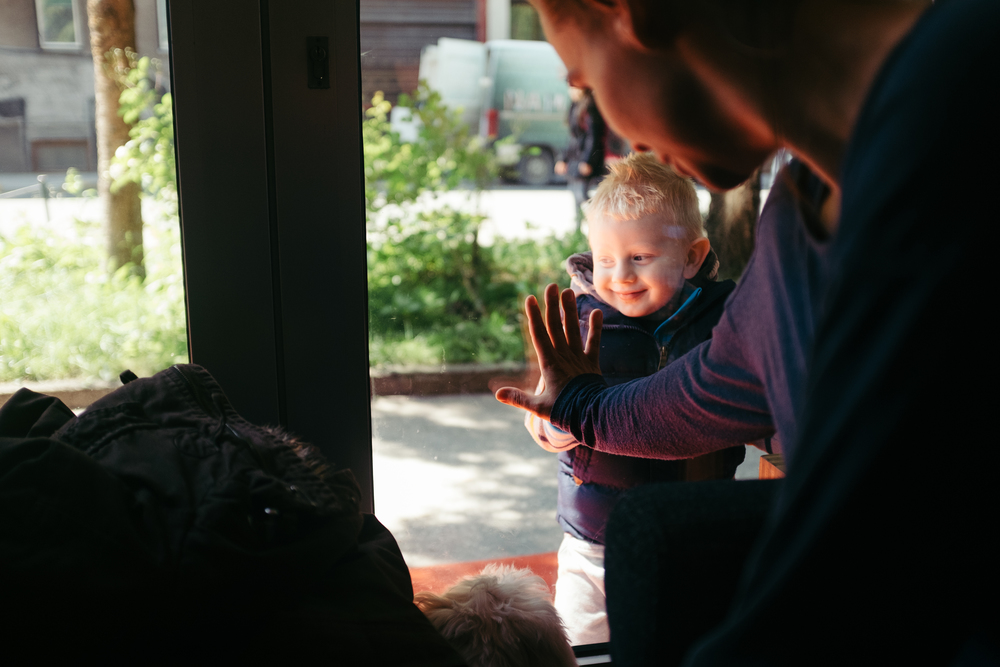
Luckily, through Project 1948 I met and interviewed so many amazing Bosnians fighting for better human rights in their country that those feelings quickly dispersed. Nonetheless, it only takes one person to ruin it for everyone. Imagine if that spitting man was the only person I met in Bosnia.
After the march, we sit down with the activists at Kino Meeting Point to have a coffee and cigarettes, a Bosnian ritual. If you come to Bosnia, expect to drink a lot of coffee.
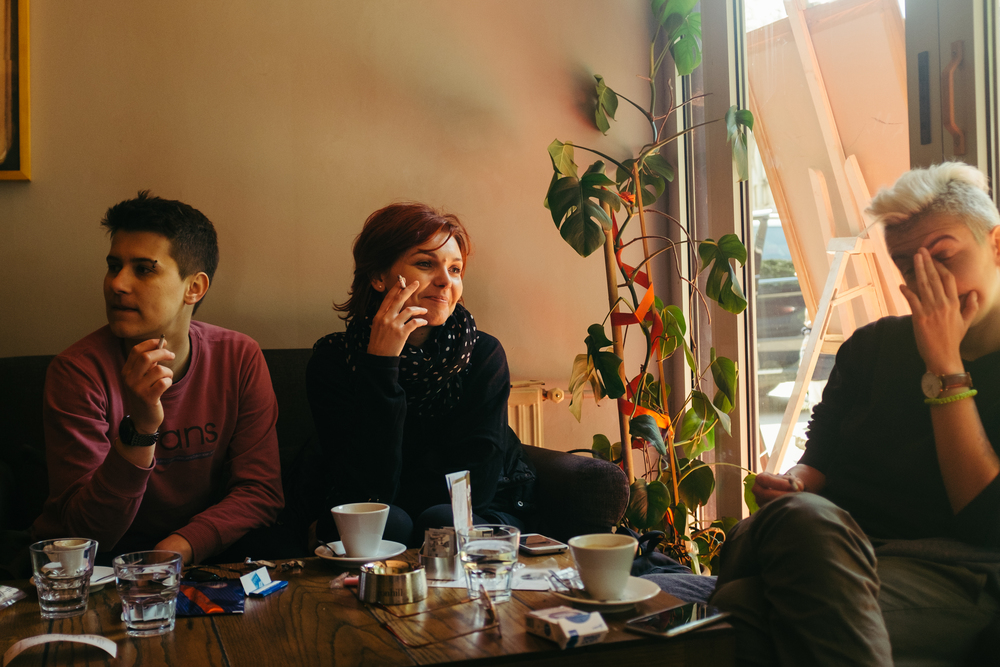
The atmosphere among the activists in the café is one of jubilation. Kučukalić is smiling but pragmatic, “Wait until we see what happens on social media.”
One young woman, Nera Civonisem, was also protesting. She’s wearing a huge grin over the rim of her coffee cup, “Come on, man. Today we marched with flags.”
Elsewhere in Sarajevo, intersections were covered with rainbows, and there’s a cautious, hopeful feeling that change could be on the horizon.
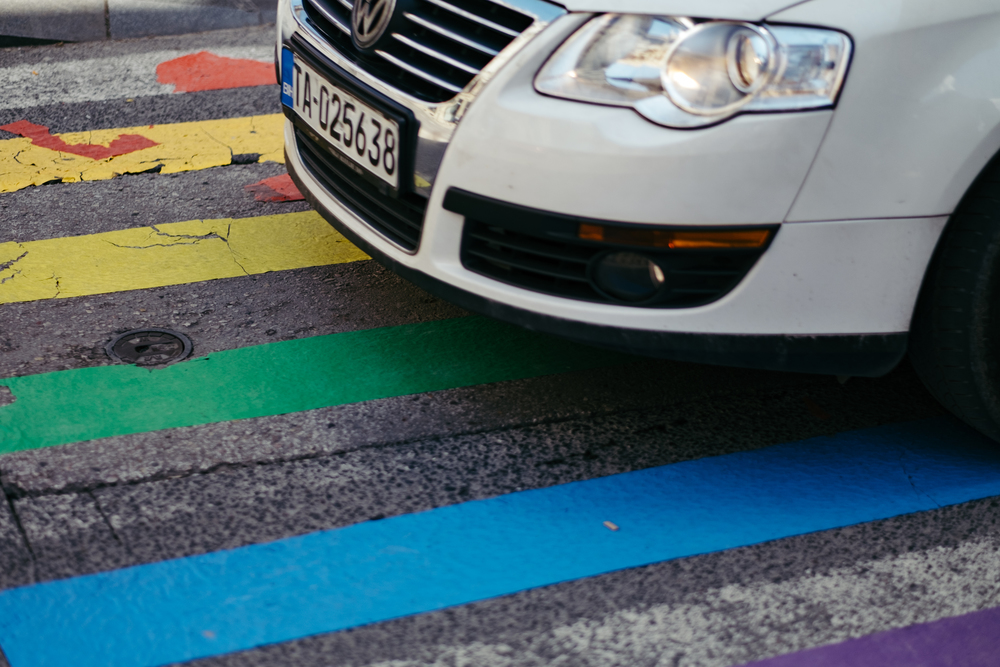
I was on assignment in Bosnia for Project 1948, an NGO that encourages Bosnian youth to pursue policy change and tackle problems in their society through interethnic photovoice projects, interviews, and community building activities.